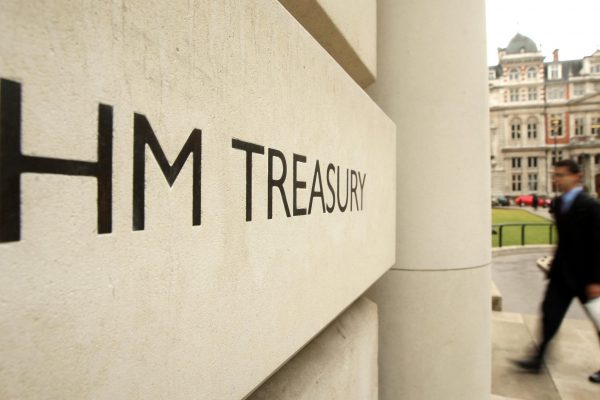
Over the last 2 days HM Treasury led by Chancellor, Rishi Sunak, has announced a number of significant changes to how the Coronavirus Loans Scheme (CBILS) will operate, forcing banks to adopt a new approach to lending under it. But what does it really mean for SMEs facing the wall?
Many banks including RBS, HSBC and Barclays have welcomed the changes and believe that the new revamped Coronavirus loans scheme for emergency funding of SMEs will have an immediate impact.
Most banks have admitted there had been significant problems but fully expect to see a “sharp increase” in lending to small firms in the next few days because of the changes.
On Thursday, Chancellor Rishi Sunak overhauled the scheme amid claims banks were taking advantage of the crisis. Despite the Treasury’s pledge to guarantee £330bn of loans, only a tiny proportion of that, £145m, has been lent so far.
Small firms say they have struggled with onerous eligibility criteria for the government-backed loans, which are being issued by High Street banks and other lenders. They have also complained of facing interest rates of up to 30% and being asked to make unreasonable personal guarantees.
Mr Sunak said that under changes to the Coronavirus Business Interruption Loan Scheme (CBILS):
- Applications will not be limited to businesses that have been refused a loan on commercial terms, extending the number who benefit. However, the Treasury has not capped the interest rates banks can charge.
- Banks will be banned from asking company owners to guarantee loans with their own savings or property when borrowing up to £250,000
- Larger firms with a turnover of up to £500m will also be eligible for more help – with state-backed loans of up to £25m available to firms with revenues of between £45m-500m.
RBS chairman Sir Howard Davies, commented that the process of checking borrowers’ eligibility had been “difficult” and that RBS were not alone in struggling with the demand for CBILS after inquiries about the loans jumped “by 45 times” in a week. “I think we have to accept that the scale of this process and the speed with which it’s been put in place has caused challenges for everybody,” he said.
On Wednesday, Business Secretary Alok Sharma said it would “completely unacceptable” if any banks were unfairly refusing funds to good businesses in financial difficulty. He also referenced the financial crisis – when taxpayers bailed out a number of the UK’s largest banks – suggesting lenders should now repay the favour.
However, Sir Howard said that comparing the current crisis to 2008 was “rewriting history”. “In the last crisis the problem was that the banks didn’t have the money to lend, there was a credit crunch. “We’re not in that position at all. The banks have got the money to lend, we have a large amount of capital, we are not constrained in the volumes we can lend.”
Despite this positive message from a major high street lender so many small firms still feel they will struggle to access the loans fast enough with an unclear application process and telephone hot line queues measured in hours not minutes.
Getting a Coronavirus Loan
The changes to CBILS are significant and every SME with at least one years trading and a business plan showing they can afford to repay the loan once the crisis is over, will be able to benefit from it. Under the CBILS scheme the government guarantee can be used to secure both overdrafts and term loans, you can also use it secure asset based financing for your business. Remember that any loan or facility will be interest free for 12 months but the interest rate may be slightly higher than normal after that.
At 4 Oceans Capital we are assisting or existing clients with their applications and from our experience here is a short summary of what you’ll need to consider to make a successful application.
- You’ll need to consider just how much cash you need to “keep the lights on” for at least the next 6 months, as a general rule, the banks will not lend any more than 25% of last years turnover or double last years wages bill, whichever is higher, under the CBIL Scheme. So bear that in mind when preparing your cash flow and take into account any other government support you are eligible for including Rates Grants, Job Retention Scheme etc. Once you take everything into account add some on for contingency you may need more than 6 months to get through this.
- Most banks have now reduced the lower limit for CBILS loans to £10,000 or more, anything below this may not be eligible for a CBILS guarantee. We understand that Lloyds Bank has set a limit of £25,000 so if you bank with them bear that in mind.
- You’ll need a basic business plan which explains what your business does, how it has been impacted by COVID-19 and what you are going to use the money for.
- You’ll need a minimum of 1 years full accounts (preferably 2 years or more) plus Management accounts till end of March.
- You’ll also need aged debtors and creditors lists, details of any other debt in the business, how much is left to pay and who it is with, eg Credit cards etc and details of all of the directors or owners in the business.
- You need to speak to your bank as soon as possible, many banks have implemented a call back scheme, use this schemes, go online and request a call back and use the time to prepare the information above.
- If you are in severe cashflow difficulty now you need to speak to your bank asap, so unfortunately you will have to wait on the phone. The good news is that most viable businesses are now getting short term finance put in place, as banks are relaxing their criteria for overdrafts.
If you follow the steps above we are sure you’ll get the support you need, but if your existing bank doesn’t offer CBILS loans or other facilities or you have been refused you need to speak to your accountant or advisor about what other lenders may be available to you.
4 Oceans Capital is offering a free 15 minute consultation to help any SME business understand what their options are and what support they may be eligible for, if you feel this may be helpful to you you can make an enquiry on the following page
Coronavirus Business Interruption Loan Scheme
If you are a startup or early stage businesses who doesn’t qualify for CBILS the, British business Bank backed, Startup Loans Company may be able to help with low cost loans of up to £25K.
Taken and amended from the original
BBC News – Coronavirus: Emergency business loan scheme revamped after criticism



Leave a Reply